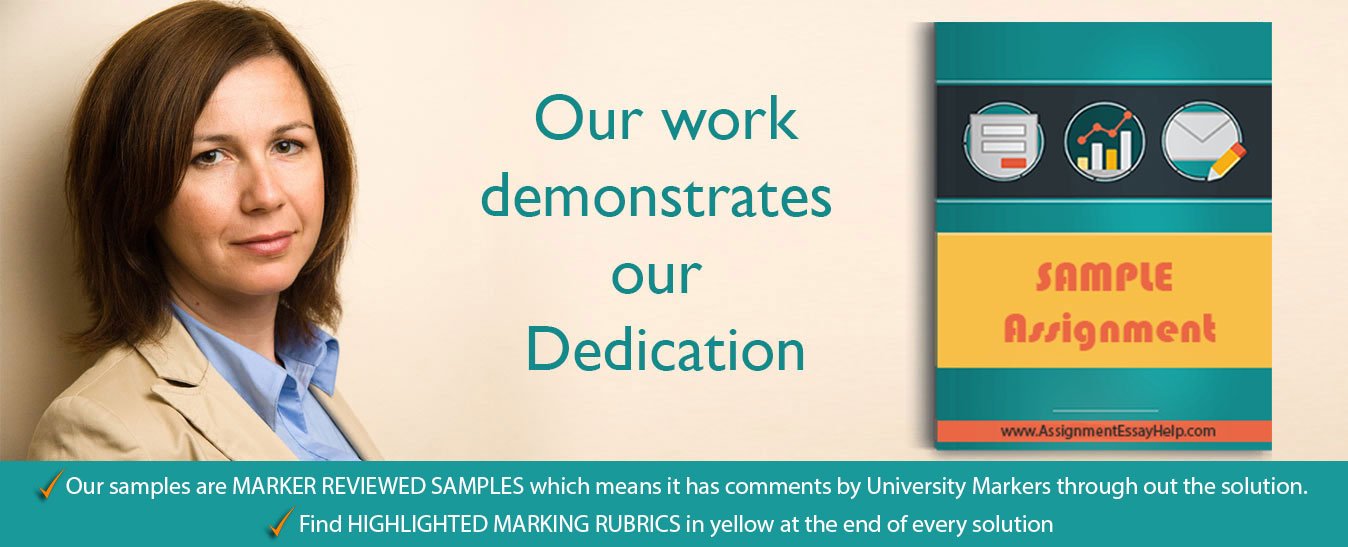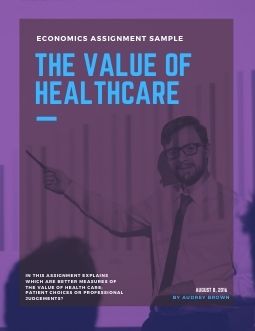
You can download the solution to the following question for free.
For further assistance in Economics Assignment help, please check our offerings in Economics assignment solutions. Our subject-matter-experts provide online assignment help to economics students from across the world and deliver plagiarism free solution with free Turnitin report with every solution.
(AssignmentEssayHelp do not recommend anyone to use this sample as their own work.)
Economics Assignment Question
Which are better measures of the value of health care; patient choices or professional judgements?
Marking criteria 1
1-You are required to respond to the question in 700 words answering the question.
2- Use your own knowledge and experience.
3- UseonlyJournals Articles with doi numberand other relevant literaturesources articles .
4- Do not use books, do not useinternet sources.
5- References must be not more than 8 references.
6-All your sources have to be appropriately acknowledged.
Marking criteria 2
In your Response to question:
7 Addresses the subject and the issues raised in the question.
8 Evidence of an appropriate level of research regarding various concepts relating to the question.
9 Demonstrates an appropriate level of understanding of the theoretical principles and concepts.
10 Ideas are clearly articulated and coherently structured.
11 Appropriate referencing.
Economics Assignment Solution
Healthcare is one of the most sensitive sectors of a society which is gaining immense significance by the day. The main objective of every country is not only to dispense and upgrade healthcare facilities, but also measure (quantify) and supervise its quality and ethical determinants.
Value of healthcare plays a major role in assessing the performance of this sector. The article (Porter, 2010) says that the highest values should revolve around consumers, where value is defined as the health results achieved per unit of money spent ( in terms of reduced cost, satisfaction, safety, autonomy, access, professional guidance, efficiency, etc.). Also, value should be measured as the amount of development rather than the volume of inputs (services rendered).
This paper studies and compares two important measures of healthcare value: patient choices and professional judgments.
PATIENT CHOICES
This is a stratagem in healthcare, which demonstrates the freedom and participation of patients (customers) to resolve on the mode and ways of treatment. It also denotes that the patient may decline a certain treatment option offered by a health expert, on any ground. An article (Downie & Macnaughton, 2009) shows how, in recent times, the traditional model has changed its base from a patient witha consumer choice, where effective options are chosen by consumers in place of professionals and the responsibility is only borne by the former. All over, this factor determines the extent of liberty and clarity in the biomedical sector, which in turn decides the standard of the health sector.
PROFESSIONAL JUDGEMENT
A judgment may be explained as a formation of a point of view or assertion made with proper verification and reasonable conviction, after evaluating a process with uncertainties. A professional judgment is made in professional surroundings, by the experts in that particular field of study. There are several factors,namely; theoretical, practical, relationships, bonds and attitudes
PATIENT CHOICES VS PROFESSIONAL JUDGMENTS
There has been an ongoing debate about the worthiness of the above two factors as a measure for the healthcare value. While patient choices or patient-centered care is a more populist, consumeristic and politicized viewpoint, professional judgment based on competencies, is a more scientific and practical approach towards improvement of healthcare quality(M.Berwick, 2009).
'Patient-autonomy' refers to independent decision-making of patients regarding their own life and choice of treatments without any external influence or professional manipulation. The article …..
Dr. Manthous (Curtis & Burt, 2007) points out the possibility of miscommunication between patients and experts, where the former may not fathom the importance of withholding a procedure (say, CPR). Here, when the doctor forces patient approval and places all responsibility of the decision on them, 'autonomy' turns out to be a curse rather than a boon. In these cases, it is more desirable to receive genuine professional judgment from doctors and profitable to…….


 WhatsApp Us
WhatsApp Us